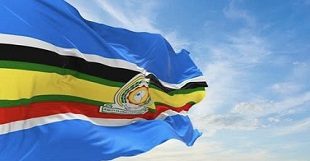
Abuja, Nigeria | Xinhua | Nigerian President Muhammadu Buhari on Thursday ordered security and anti-graft agencies to intensify efforts of apprehending and prosecuting citizens sabotaging the seamless implementation of the country’s new monetary policy.
Buhari said in a national broadcast that he had already directed the Central Bank of Nigeria (CBN) to address the impediments to the cashless policy and swapping of banknotes by ensuring that any institutions or persons found to have sabotaged the implementation process faced the full weight of the law.
“I am not unaware of the obstacles placed on the path of innocent Nigerians by unscrupulous officials in the banking industry, entrusted with the process of implementation of the new monetary policy. I am deeply pained and sincerely sympathize with you all, over these unintended outcomes,” the president said.
The CBN recently implemented a cashless policy, which aimed to reduce the amount of physical cash in circulation and promote the use of digital payments. The sudden shortage of naira, the local currency, however, has left many Nigerians struggling to find enough physical cash.
Buhari said as part of ways to stem the tide, he had also directed the central bank to deploy all legitimate resources and legal means to ensure that citizens were adequately educated on the new policy; enjoy easy access to cash withdrawal through the availability of appropriate amounts of currency; and ability to make deposits.
“I admonish every citizen to strive harder to make their deposits by taking advantage of the platforms and windows being provided by the CBN,” he said.
According to Buhari, the new cashless policy was a positive departure from the past and represents a bold legacy step by his administration toward laying a strong foundation for free and fair democratic elections in the most populous African country.
The policy would contribute immensely to the minimization of the influence of money in politics, particularly the forthcoming general elections starting on Feb. 25, he added.
 The Independent Uganda: You get the Truth we Pay the Price
The Independent Uganda: You get the Truth we Pay the Price


